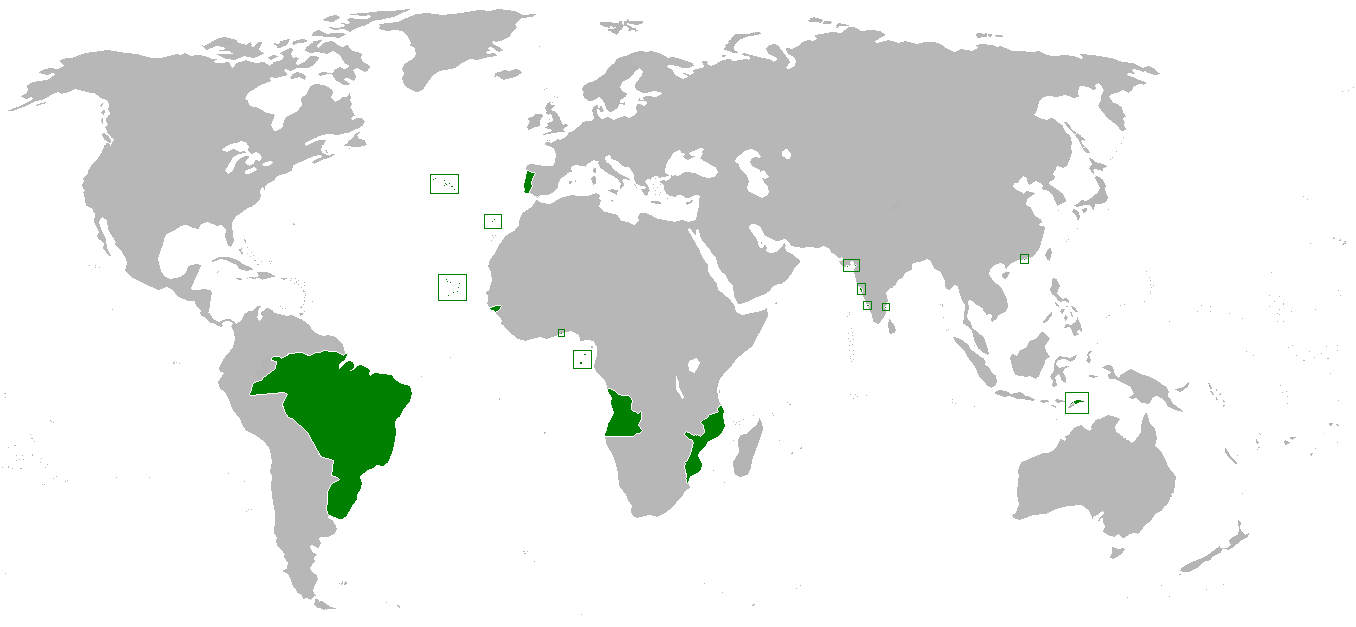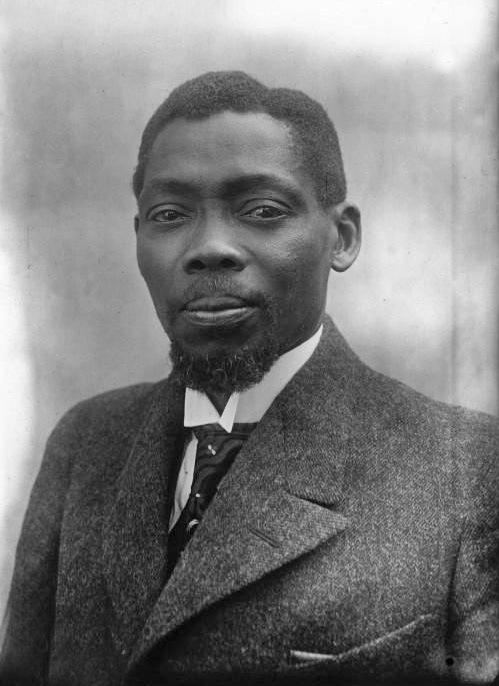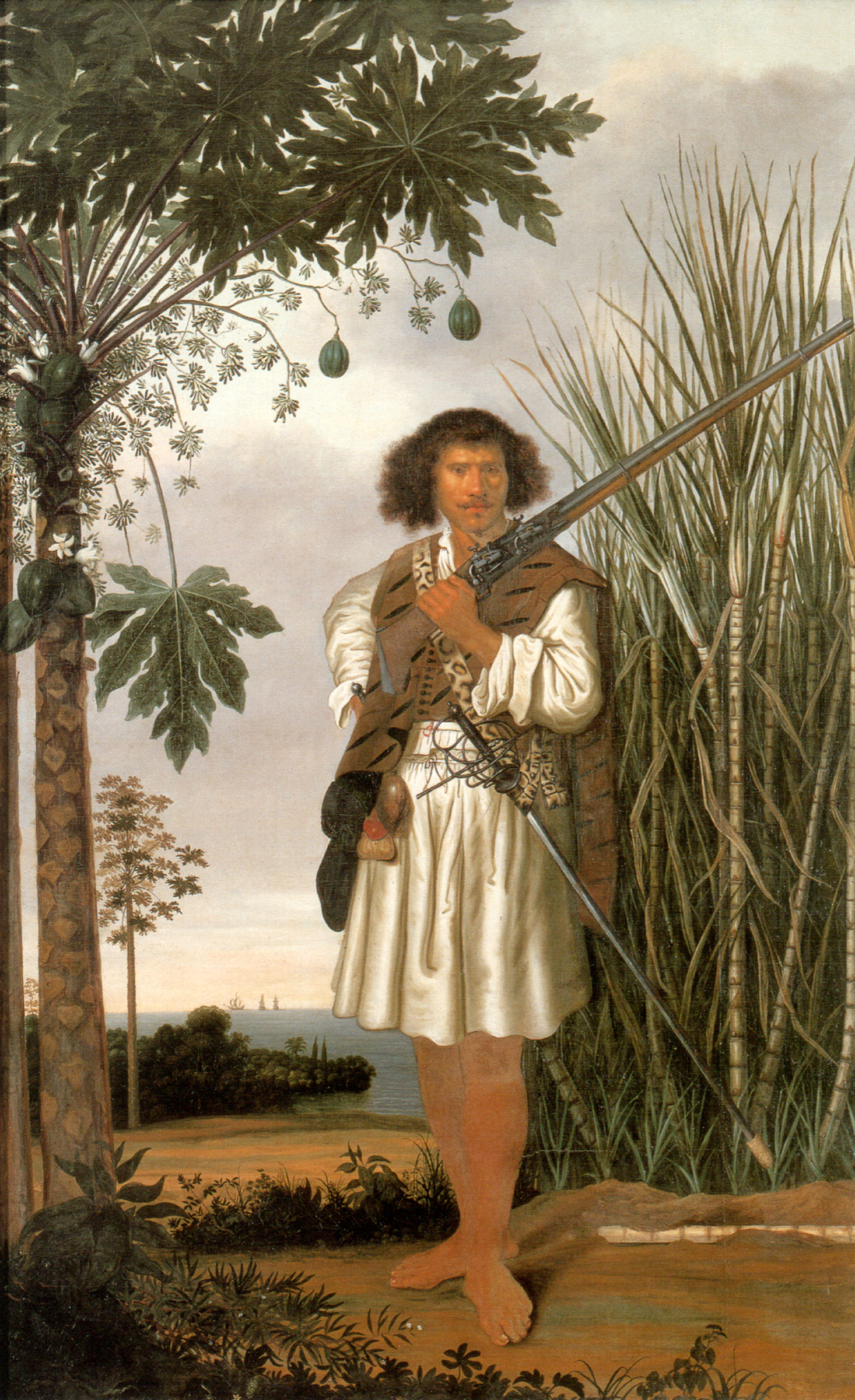|
Assimilados
Assimilado is the term given to African subjects of the colonizing Portuguese Empire from the 1910s to the 1960s, who had reached a level of "civilization", according to Portuguese legal standards, that theoretically qualified them for full rights as Portuguese citizens. Portuguese colonizers claimed as the goal for their assimilation practices, the "close union of races of different degrees of civilization that help and support each other loyally"; however, this notion of a "close union" differed from its practical application in the cultural and social spheres of the colonies of Portuguese Angola, Portuguese Mozambique and Portuguese Guinea.Heywood, Linda (2000). ''Contested Power in Angola, 1840s to the Present'', pp. 92-93. Rochester: University of Rochester Press. . Formation in Portuguese lawmaking Assimilation ideals begin Portugal, along with France, was one of the only Africa colonizers which introduced the idea of assimilation of the colonized people into the popula ... [...More Info...] [...Related Items...] OR: [Wikipedia] [Google] [Baidu] |
Lançados
The ''lançados'' (literally, ''the thrown out ones'' Pardue 2015: p. 42 or ''the cast out ones'') were settlers and adventurers of Portuguese origin in Senegambia, Cabo Verde, Guinea, Sierra Leone, and other areas on the coast of West Africa. Many were Jews—often New Christians—escaping persecution from the Portuguese Inquisition. ''Lançados'' often took African wives from local ruling families, securing protection and advantageous trading ties. They established clandestine trading networks in weaponry, spices, and slaves. This black market angered the Portuguese Crown by disrupting its ability to collect taxes. Although never large in numbers, mixed-race children born to the ''lançados'' and their African wives and concubines served as crucial intermediaries between Europeans and native Africans. These mixed-race people wielded significant power in the early development of port economies in Bissau, Cacheu, and surrounding areas. The ''lançados'' originated the Portuguese-b ... [...More Info...] [...Related Items...] OR: [Wikipedia] [Google] [Baidu] |
Luso-Africans
Luso-Africans are people of mixed Portuguese and African ancestry who speak Portuguese. The vast majority of Luso-Africans live in former Portuguese Africa, now referred to as ''Lusophone Africa'', comprising the modern countries of Angola, Guinea-Bissau, Cape Verde, Mozambique, São Tomé and Príncipe, and Equatorial Guinea. A sizable number of Luso-Africans have also settled in Portugal where they form a racial minority. This ethnic identity arose from the sixteenth century as primarily male Portuguese settlers, often ''Lançados'', settled in various parts of Africa, often marrying African women. In the fifteenth and sixteenth century, Portuguese traders settled in the Cape Verde Islands and along the West African coast from Senegal to Sierra Leone. Descendants of these traders and of local African women formed the nucleus of a Luso-African community that soon developed a distinctive culture, joining elements of European and local African culture. These Luso-Africans, or 'Portu ... [...More Info...] [...Related Items...] OR: [Wikipedia] [Google] [Baidu] |
Lusotropicalism
Lusotropicalism ( pt, Lusotropicalismo) is a term and "quasi-theory" developed by Brazilian sociologist Gilberto Freyre to describe the distinctive character of Portuguese imperialism overseas, proposing that the Portuguese were better colonizers than other European nations.Miguel Vale de AlmeidaPortugal’s Colonial Complex: From Colonial Lusotropicalism to Postcolonial Lusophony/ref> Freyre theorized that because of Portugal's warmer climate, and having been inhabited by Celts, Romans, Visigoths, Moors and several other peoples in pre-modern times, the Portuguese were more humane, friendly, and adaptable to other climates and cultures. He saw "Portuguese-based cultures as cultures of ecumenical expansion" and suggested that "Lusotropical culture was a form of resistance against both the 'barbaric' Soviet communist influence, and the also 'barbarian' process of Americanization and capitalist expansion." In addition, by the early 20th century, Portugal was by far the European c ... [...More Info...] [...Related Items...] OR: [Wikipedia] [Google] [Baidu] |
Pluricontinentalism
Pluricontinentalism ( pt, Pluricontinentalismo) was a geopolitical concept, positing that Portugal was a transcontinental country and a unitary nation-state consisting of continental Portugal and its overseas provinces. With origins as early as the 14th century, pluricontinentalism gained official state sponsorship in the Estado Novo regime. It was the idea that Portugal was not a colonial empire (Portuguese Empire) but a singular nation-state spread across continents (hence the name). As such, overseas possessions were a part of Portuguese identity. The first time that Portugal was a pluricontinental country was during the reign of Maria I of Portugal, with the creation of the United Kingdom of Portugal, Brazil and the Algarves, when the Portuguese court was living in Brazil and Rio de Janeiro served as the capital for the country. The idea of pluricontinentalism quickly collapsed following the Carnation Revolution in 1974. People associated with pluricontinentalism *Antó ... [...More Info...] [...Related Items...] OR: [Wikipedia] [Google] [Baidu] |
Lusotropicalism
Lusotropicalism ( pt, Lusotropicalismo) is a term and "quasi-theory" developed by Brazilian sociologist Gilberto Freyre to describe the distinctive character of Portuguese imperialism overseas, proposing that the Portuguese were better colonizers than other European nations.Miguel Vale de AlmeidaPortugal’s Colonial Complex: From Colonial Lusotropicalism to Postcolonial Lusophony/ref> Freyre theorized that because of Portugal's warmer climate, and having been inhabited by Celts, Romans, Visigoths, Moors and several other peoples in pre-modern times, the Portuguese were more humane, friendly, and adaptable to other climates and cultures. He saw "Portuguese-based cultures as cultures of ecumenical expansion" and suggested that "Lusotropical culture was a form of resistance against both the 'barbaric' Soviet communist influence, and the also 'barbarian' process of Americanization and capitalist expansion." In addition, by the early 20th century, Portugal was by far the European c ... [...More Info...] [...Related Items...] OR: [Wikipedia] [Google] [Baidu] |
Assimilation (French Colonialism)
Assimilation was a major ideological component of French colonialism during the 19th and 20th centuries. The French government promoted the concept of cultural assimilation to colonial subjects in the French colonial empire, claiming that by adopting French culture they would ostensibly be granted the full rights enjoyed by French citizens and be legally considered "French". Colonial settlements established by the French, such as the Four Communes in French West Africa, were created with the assimilation concept in mind, and while Africans living in such settlements were theoretically granted the full rights of French citizens, discriminatory policies from various French colonial administrations denied most of these rights to "full-blooded Africans". Definition The concept of assimilation in French colonial discourse was based on the idea of spreading French culture to France's colonies in the 19th and the 20th centuries. Colonial subjects living in French colonies were consi ... [...More Info...] [...Related Items...] OR: [Wikipedia] [Google] [Baidu] |
Portuguese Colonial War-fr
Portuguese may refer to: * anything of, from, or related to the country and nation of Portugal ** Portuguese cuisine, traditional foods ** Portuguese language, a Romance language *** Portuguese dialects, variants of the Portuguese language ** Portuguese man o' war, a dangerous marine cnidarian that resembles an 18th-century armed sailing ship ** Portuguese people, an ethnic group See also * * ''Sonnets from the Portuguese'' * "A Portuguesa", the national anthem of Portugal * Lusofonia * Lusitania Lusitania (; ) was an ancient Iberian Roman province located where modern Portugal (south of the Douro river) and a portion of western Spain (the present Extremadura and the province of Salamanca) lie. It was named after the Lusitani or Lusita ... * {{disambiguation Language and nationality disambiguation pages ... [...More Info...] [...Related Items...] OR: [Wikipedia] [Google] [Baidu] |
MPLA
The People's Movement for the Liberation of Angola ( pt, Movimento Popular de Libertação de Angola, abbr. MPLA), for some years called the People's Movement for the Liberation of Angola – Labour Party (), is an Angolan left-wing, social democratic political party. The MPLA fought against the Portuguese army in the Angolan War of Independence from 1961 to 1974, and defeated the National Union for the Total Independence of Angola (UNITA) and the National Liberation Front of Angola (FNLA) in the Angolan Civil War. The party has ruled Angola since the country's independence from Portugal in 1975, being the ''de facto'' government throughout the civil war and continuing to rule afterwards. Formation On 10 December 1956, in Estado Novo-ruled Portuguese Angola, the underground Angolan Communist Party (PCA) merged with the Party of the United Struggle for Africans in Angola (PLUA) to form the People's Movement for the Liberation of Angola, with Viriato da Cruz, the president of ... [...More Info...] [...Related Items...] OR: [Wikipedia] [Google] [Baidu] |
Órfãs Do Rei
The Órfãs do Rei (, ''orphans of the king'') were Portuguese girl orphans who were sent from Portugal to overseas colonies during the Portuguese Empire as part of Portugal's colonization efforts. The orphans were married to native rulers or Portuguese settlers. Purpose and practicalities Orfãs do Rei translates to "Orphans of the King", and they were all girls. Their fathers were Portuguese men who died in battle for the king. They were sent to the colonies of the Portuguese Empire. The Asian colonies contained more Portuguese females than was previously thought. Bernard Sta Maria wrote that "From 1545, King John III began to send to India (and the Far East) with all pomp and distinction many young Portuguese women known as 'Orphans of the Queen' to be married with local young men." Both noble and non-noble girls were in the ''órfãs do rei''. Since these girls were specifically designated as the "King's", the Portuguese government paid for their care and upbringing before and ... [...More Info...] [...Related Items...] OR: [Wikipedia] [Google] [Baidu] |
Mestiço
Mestiço is a Portuguese term that referred to persons born from a couple in which one was an aboriginal person and the other a European. Mestiço community in Brazil in Colonial Brazil, it was initially used to refer to , persons born from a couple in which one was an Indigenous American and the other a European. It literally translates as "mameluke", probably referring to the common Iberian comparisons of swarthy people to North Africans (cf. , "tawny, swarthy, tanned" but also "dark colored" or "dark-haired human", from , "Moor"). The term fell in disuse in Brazil and was replaced by the much more familiar-sounding (formerly , from Tupi ''ka'abok'', "the ones coming from the wilderness") or (from ''kari'boka'', "what comes from the white man"; could also mean the child of a and a white person, equivalent to the Spanish , or to the child of a and an Indigenous person, equivalent to the Spanish ), given the fact that most Brazilians, even those living in ubiquitously ... [...More Info...] [...Related Items...] OR: [Wikipedia] [Google] [Baidu] |
White Man's Burden
"The White Man's Burden" (1899), by Rudyard Kipling, is a poem about the Philippine–American War (1899–1902) that exhorts the United States to assume colonial control of the Filipino people and their country.Hitchens, Christopher. ''Blood, Class, and Empire: The Enduring Anglo–American Relationship'' (2004) pp. 63–64 Originally written to celebrate the Diamond Jubilee of Queen Victoria (22 June 1897), the jingoistic poem was replaced with the sombre " Recessional" (1897), also a Kipling poem about empire. In "The White Man's Burden", Kipling encouraged the American annexation and colonisation of the Philippine Islands, a Pacific Ocean archipelago conquered in the three-month Spanish–American War (1898). As an imperialist poet, Kipling exhorts the American reader and listener to take up the enterprise of empire yet warns about the personal costs faced, endured, and paid in building an empire; nonetheless, American imperialists understood the phrase "the white man's ... [...More Info...] [...Related Items...] OR: [Wikipedia] [Google] [Baidu] |
Lusosphere
Lusophones ( pt, Lusófonos) are peoples that speak Portuguese as a native or as common second language and nations where Portuguese features prominently in society. Comprising an estimated 270 million people spread across 10 sovereign countries and territories, thus called ''Lusofonia'' or the Lusophone world ( pt, Mundo Lusófono), is the community of Portuguese-speaking (Lusophone) world; these include Angola, Brazil, Cape Verde, Galicia, Guinea Bissau, Equatorial Guinea, Macau, Mozambique, Portugal, São Tomé and Príncipe, East Timor, Uruguay, Cochin, Azores, Madeira, Goa, Daman and Diu, Singapore and Malacca to various degrees. The history of the Lusophone world is intrinsically linked with the history of the Portuguese Empire, although the Portuguese diaspora, the Brazilian diaspora and the Cape Verdean diaspora communities have also played a role in spreading the Portuguese language and Lusophone culture. Portuguese-speaking nations cooperate in politics, culture and the ... [...More Info...] [...Related Items...] OR: [Wikipedia] [Google] [Baidu] |
.jpg)


